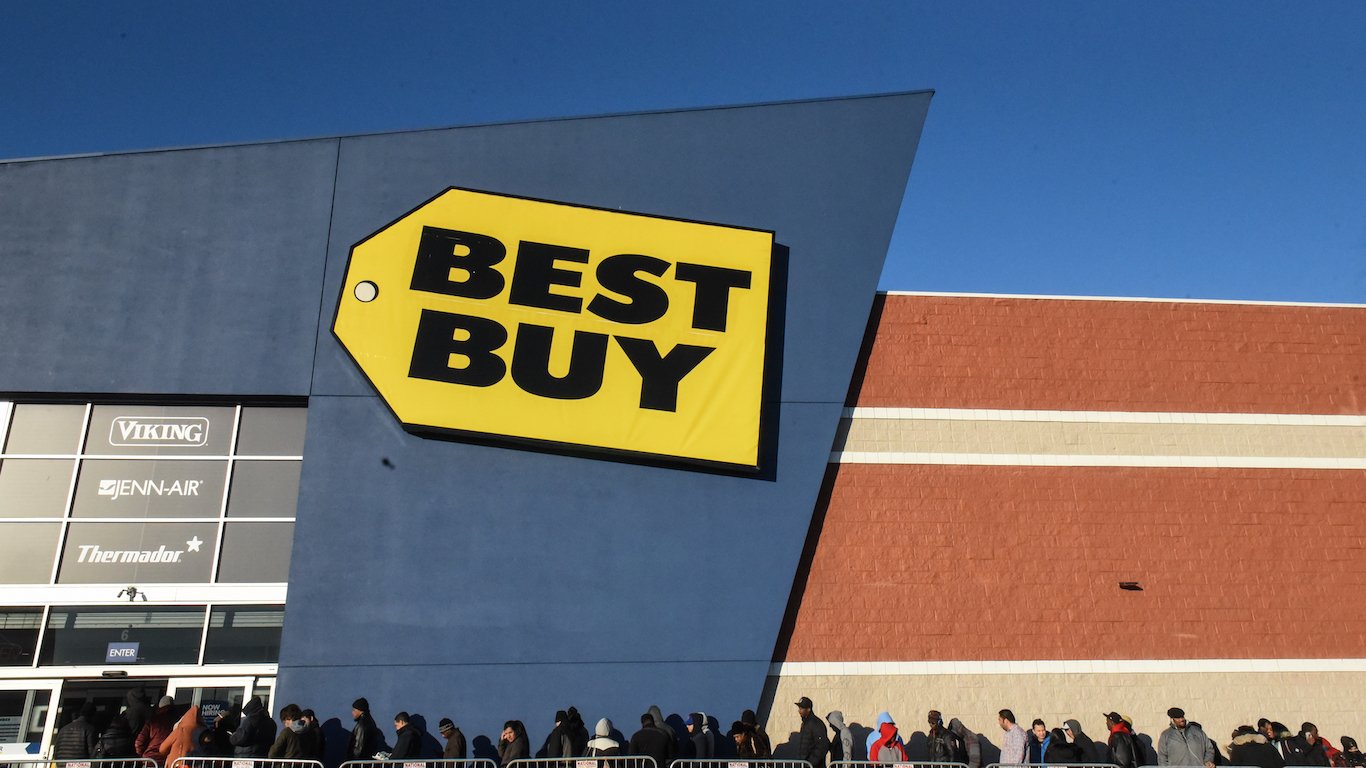
With 2015 coming to an end, it is hard to imagine that December 18 was the final trading Friday of the year. Investors have dealt with choppy markets in 2015 and a new review from 14 Wall Street strategists projected a positive but choppy 2016.
24/7 Wall St. has been reviewing sectors backward and forward and wanted to look at the conglomerates for an outlook in 2016. General Electric Co. (NYSE: GE) has so far led 2015, with gains of about 25%, with Honeywell International Inc. (NYSE: HON) up nearly 5%. 3M Co. (NYSE: MMM), after a stellar 2014, was last seen down 7% for 2015, because of the reaction to its recent guidance. Berkshire Hathaway Inc. (NYSE: BRK-A) has suffered due to mixed investment performance and due to a poor rail bias in the current climate.
So, which conglomerate has the most upside potential? 24/7 Wall St. took a look at what has been working (or has been a drag) for 2015 and provided basic valuation and trading data for what may lie ahead. This also includes consensus analyst data from Thomson Reuters, price-to-earnings (P/E) valuations for 2016 (not on Berkshire though) and individual analyst reports or outlooks, which may be more positive than the consensus estimates.
GE
General Electric Co. (NYSE: GE) led the conglomerate wave in 2014 and has 25% gains so far this year. GE has migrated away from being a financial powerhouse and toward more of an industrial conglomerate. It has completed the Synchrony Financial (NYSE: SYF) spin-off and exchange, is buying back billions in shares, and still offers a 3% yield after running up so much. GE is likely to hike its dividend after things start to normalize.
Shares of GE were last seen trading at $30.50, with a consensus analyst price target of $31.77 and a 52-week trading range of $19.37 to $31.23. The company has a market cap of $288 billion and a dividend yield of 3.0%. Looking ahead to 2016, the company has a multiple of 20.2, compared to the current price.
One concern about the stock is that Credit Suisse recently removed GE from its Focus List, but the firm was still very positive with a $34 price target (up from $31). GE has roughly 6% implied upside for 2016 to the consensus target if you include the dividend, so the gains in 2015 may have bitten into that expected upside — which might mean investors will buy aggressively if the stock pulls back very much. Now GE just has to hope for oil and gas to catch up again.
Honeywell
So far in 2015, Honeywell International Inc. (NYSE: HON) was up almost 5%. The company continues to play with its portfolio of units, and its big share price growth was from early 2012 around $55.00 and rising to $100 by the end of 2014. Honeywell appears to be having better margins than expected, and its Elster acquisition is viewed as positive.
Honeywell shares were recently trading at $102.50. The stock has a consensus price target of $114.85 and a 52-week range of $87.00 to $107.41. The market cap is $79 billion, with a dividend yield of 2.4%. Looking ahead to 2016, the company has a multiple of 15.6, compared to the current price.
Analysts have a consensus upside for Honeywell of 12% or so, or almost 15% if you include the dividend, for 2015. Oppenheimer just came out a bit more aggressive, with a price target hike to $120.00 per share after its 2016 guidance of $6.45 to $6.70 earnings per share (EPS) for 6% to 10% expansion, implying upside of closer to 17% if Oppenheimer is correct.
3M
3M Co. (NYSE: MMM) was a huge gainer before 2015, and its guidance was received very poorly. That being said, it seemed quite silly that the street sold off 3M so much on that guidance.
Shares of 3M were trading at $147.58, within a 52-week trading range of $134.00 to $174.50. The consensus price target is $159.36. The company has a market cap of $91 billion and a dividend yield of 2.8%. Looking ahead to 2016, the company has a multiple of 17.8, compared to the current price.
If you add up the dividend and analyst target upside, 3M is expected to have gains of close to 11% in 2016. That is better than GE but lower than Honeywell. Merrill Lynch was recently positive in its 3M view in 2016, with a much higher price objective up at $178.00.
Berkshire Hathaway
Berkshire Hathaway Inc. (NYSE: BRK-A) has become even more of an operations conglomerate in recent years. The acquisitions of Precision Castparts, BNSF and the deal with Kraft-Heinz just solidifies that role. Warren Buffett is still going strong. Analyst coverage in Berkshire is very spotty, so valuation metrics are not included. Buffett has made many big changes to his public equity holdings of late.
Shares of Berkshire Hathaway were recently trading at $197,615.00. The stock has a 52-week trading range of $190,007.00 to $229,300.00, and the market cap is roughly $326 billion. Looking ahead to 2016, the company has a multiple of 23,694, compared to the current price. Keep in mind that Berkshire Hathaway pays no dividend.
Berkshire Hathaway’s book value per A-share was last listed as $151,083 (as of 9/30), so it now trades at roughly 1.3 times its stated book value. Buffett maintains that book value per share is the best way to judge his performance, and that 1.3 or so times book value is actually a lower than its average has been for the past three years or so.
[ims_survey]
It seems we have a very mixed picture for what to expect ahead. There may just not be a clear winner among the conglomerates that investors can jump onto for 2016. 3M has run into a hiccup, but shares may have sold off too much. GE has seen its shares take off already, but analysts keep raising their price targets, and GE is buying back massive amounts of stock ahead. Buffett has been stuck in the mud, but what if his IBM and railroad bets magically get better ahead? Honeywell has the highest official expected upside to the consensus target, adding in the dividend for its expected total return. Does that mean that Honeywell will be the top conglomerate stock of 2016? Maybe, and maybe not.
The Dow Jones Industrial Average has so far fallen significantly far short of the 19,142 implied peak value for 2015. And those 14 strategists on Wall Street are calling for a mixed but positive 2016. Stay tuned.
Take This Retirement Quiz To Get Matched With An Advisor Now (Sponsored)
Are you ready for retirement? Planning for retirement can be overwhelming, that’s why it could be a good idea to speak to a fiduciary financial advisor about your goals today.
Start by taking this retirement quiz right here from SmartAsset that will match you with up to 3 financial advisors that serve your area and beyond in 5 minutes. Smart Asset is now matching over 50,000 people a month.
Click here now to get started.
Thank you for reading! Have some feedback for us?
Contact the 24/7 Wall St. editorial team.



